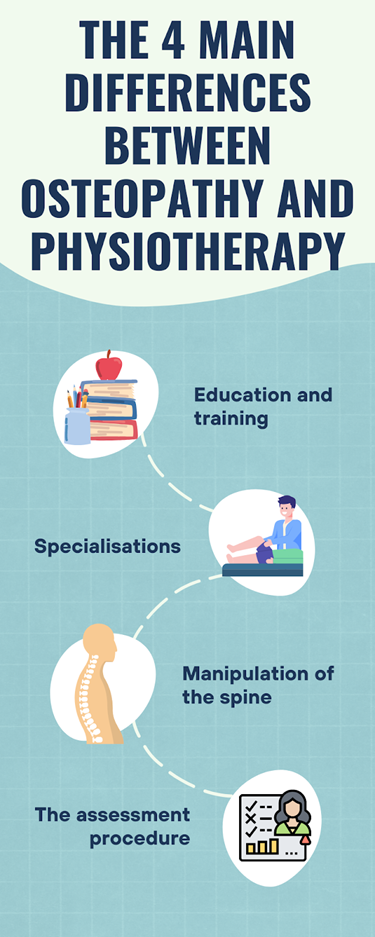
What’s the difference between physiotherapy and osteopathy in Singapore, you might ask? Clients frequently inquire about the differences between the two medical practices, and this article aims to provide an overview of the main differences.
1. Education and training
Their exposure to and treatment of medical conditions varies greatly between the two degrees. Physical therapists work with the nervous, respiratory, and muscular-skeletal systems. This gives physiotherapists a solid foundation of knowledge and skills.
Aside from clinical placements, an osteopath from Singapore must also work in a “private practice” teaching clinic as part of their training. Most patients come to these specialists with a musculoskeletal or sports injury. As a result, osteopathy students in Singapore see fewer injuries and complaints.
2. Specialisations
Osteopaths and physiotherapists, like other health care professionals, can specialise as they gain experience and knowledge. Due to the wide range of specialities in the professions, this article suggests asking about the clinician’s skills and experience at the physiotherapy clinic in Singapore.
3. Manipulation of the spine
One of the main differences is the type of ‘hands-on’ treatment you might receive. When a therapist “cracks” your spine or joint, it’s a form of spinal manipulation. It is where the gas bubbles are coming out of the joint. Spinal manipulation techniques are used by both physiotherapists and osteopaths to treat acute low back and neck pain. This usually takes place at a physiotherapy clinic in Singapore.
4. The assessment procedure
To determine the nature of your problem, a physiotherapist or osteopath from Singapore will take a detailed medical history and perform a physical examination. The overall assessment process is likely to be very similar. Your therapist’s training and experience may have an impact. Osteopaths may take a more holistic approach than other practitioners. A physiotherapist would not do this; they might even “assess” your internal organs. Contrarily, physiotherapists focus on the specific area causing pain or discomfort while also considering the entire functional system.
For more information about dry needling in Singapore, please check out Calibrate Health and view their FAQs.


